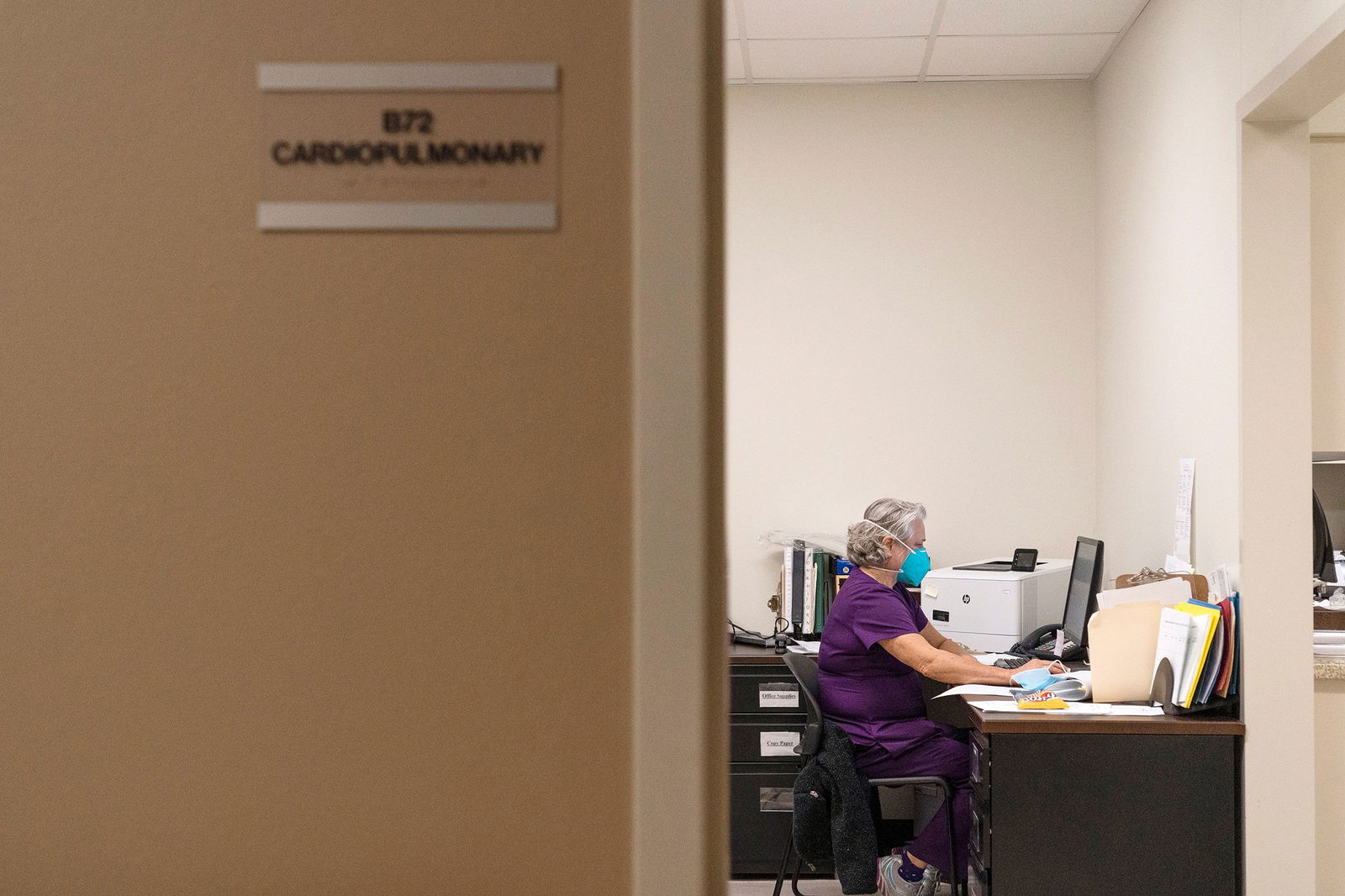Trump launches effort to improve Americans’ access to their medical records — but privacy concerns loom

In this December 2020 photo
By Adam Cancryn, CNN
(CNN) — President Donald Trump on Wednesday made a fresh push to improve Americans’ access to their own medical records, tasking dozens of major health and technology companies with solving an issue that has long bedeviled the federal government.
The plan centers on a pledge that more than 60 companies have signed — including tech giants Amazon, Apple, Google, Microsoft and Oracle — to help develop new ways for more easily sharing patient data across the US’s fragmented health care system, three people familiar with the matter told CNN and the Centers for Medicare and Medicaid Services later confirmed. Trump touted the voluntary framework during a White House speech on Wednesday.
Yet it remains unclear how quickly the companies can make progress on such a sweeping goal — and how the administration plans to hold them accountable for following through on the high-level, nonbinding commitment. The proposal may also spark pushback from privacy advocates who have warned that making patients’ sensitive health data more widely accessible risks also making it less secure.
The companies signing the administration’s pledge have committed to “work collaboratively to deliver results” for Americans by early 2026, CMS said, though it did not detail any specific benchmarks that the group is expected to meet.
“We’re tearing down digital walls, returning power to patients, and rebuilding a health system that serves the people,” US Health and Human Services Secretary Robert F. Kennedy Jr. said in a statement.
Bloomberg News first reported some of the initiative’s details.
The move represents the latest in a long line of attempts by the federal government to give patients greater access and control over their own health records, which often don’t smoothly transfer from one health provider to another. Meanwhile, there’s a newly added benefit for Silicon Valley, which has heavily invested in a growing array of consumer health, wellness and artificial intelligence startups that stand to gain from users being able to more seamlessly download their data and direct it to the apps of their choice.
CMS is now planning to add an app library to its Medicare.gov website promoting “trusted” digital health tools that are focused on prevention, chronic disease management and other health care needs, the agency said.
Amy Gleason, the acting administrator of DOGE and a former health tech executive, and Arda Kara, who worked at big data firm Palantir before joining the Trump health department, have led the medical records push, two of the people familiar said.
The pledge comes two-and-a-half months after the health department issued a request for input from health and tech companies for improving the nation’s “digital health ecosystem.”
Past Democratic and Republican administrations have made improving health record access a policy priority, arguing that it’s critical to providing patients with better and more efficient care. But progress in Congress and within the federal government has been slowed by the thicket of technical challenges and privacy considerations surrounding Americans’ most sensitive health data.
Trump officials are planning to try a different route, relying on the private sector to make headway on those thorny problems ahead of any significant government intervention, the people familiar said.
The tactic mirrors the hands-off approach the administration has taken on other top health priorities, such as encouraging food companies to voluntarily remove artificial dyes from products and getting insurers to commit to improving a “prior authorization” process often blamed for delaying patients’ care.
But overhauling health records access will likely require broad collaboration among competitors across the health and technology industries, raising questions about whether the private sector will be able to agree on a host of minute details with broad implications.
Plus, previous pushes have prompted significant concerns among privacy advocates and some parts of the health industry. Those groups worried that giving Americans greater ability to share their records will undermine federal efforts to keep their information private, making it easier for people to unwittingly expose their most sensitive data to companies with poor security or bad intentions, which could profit by selling that data.
This article has been updated with additional details.
The-CNN-Wire
™ & © 2025 Cable News Network, Inc., a Warner Bros. Discovery Company. All rights reserved.



